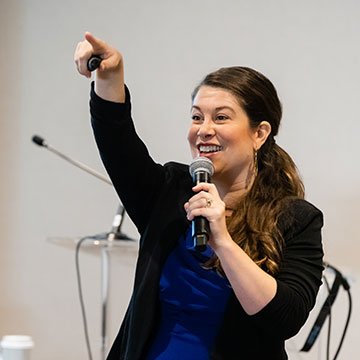Culture
When we ask our employee-owners and our clients why they like working at and with ESA, the answer is universal: the people. From the Pacific Northwest to Southern Florida, the ESA culture is built on inclusion, creativity, collaboration, and a commitment to our work, our clients, and our communities.

Diversity, Inclusion & Belonging

Dr. Lauren Aguilar, who specializes in translating the science of diversity into actionable strategies, presents to ESA’s senior leadership team.
We believe that collaborating with colleagues from a variety of backgrounds, experiences, and perspectives leads to better solutions and opportunities for everyone. We celebrate the differences—age, color, physical ability, ethnicity, family or marital status, gender identity or expression, orientation, language, national origin, race, religion, veteran status, and other characteristics—that make each of us unique.
ESA’s culture is built on mutual respect, recognizing that the collective sum of our individual differences and life experiences fosters our continued success and achievement, for our employee-owners and our clients.
Learn more about our JEDI (Justice Equity Diversity and Inclusion) program.
Sustainability
A sustainable future is important to everyone―our clients, employee-owners, and communities―and we pledge to be an environmental leader that attains results. We are dedicated to integrating the environmental, economic, and social principles of sustainability into all aspects of our work.
We incorporate environmental considerations into all levels of business operations: from outfitting our offices (more than half of which are in LEED® or ENERGY STAR certified buildings) with receptacles for composting food waste and locations near transit hubs, to employing technology to facilitate face-to-face meetings—minus the travel—and guiding our clients to sustainable project solutions. See our progress to date in our Sustainability Report (2025 Update).
And our commitment extends far beyond the walls of our offices and the perimeters of our project sites. ESA and our staff generously volunteer time and money to organizations and causes that foster sustainability within our local communities.
